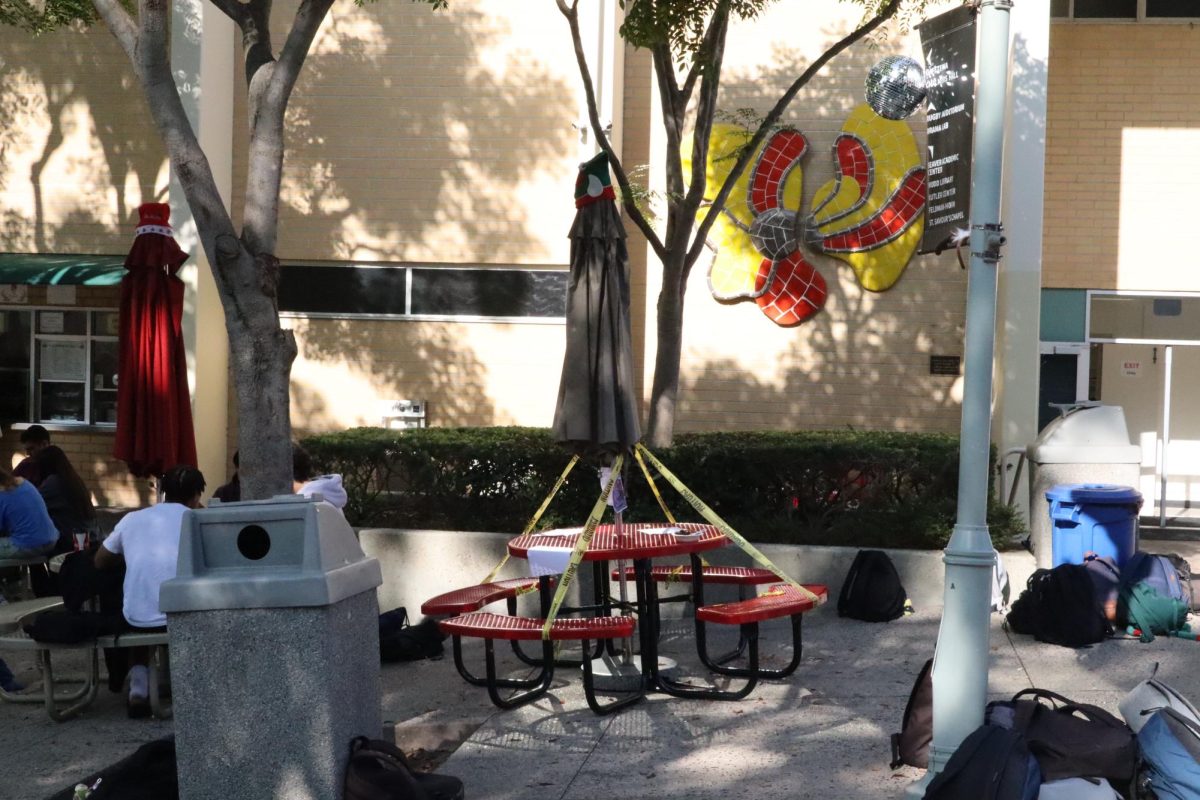Â
By Jamie Kim
At a private screening of his latest movie, “Up in the Air,” director Jason Reitman â95 spoke candidly about how he adapted his screenplay to the context of an economic recession, why he is drawn to polarizing characters and issues and why he could easily relate to a man whose sole purpose in life is to reach 10 million frequent flyer miles.
The screening and question and answer session is the third installment of the âSpeaking of Moviesâ speaker series, was hosted by Reitman on Dec. 8 at the Sherry Lansing Theatre at Paramount Studios. Speaking of Movies began last year when Reitman, whose credits include “Thank You for Smoking” and “Juno,” contacted photography teacher Kevin OâMalley and Head of Visual Arts Cheri Gaulke because he was interested in “[giving] back to the school in some way,” Gaulke said.
“What he suggested was that he use his address book to contact some of the most fascinating people in the film business and interview them in front of an audience at Harvard-Westlake,” she said.
This year, that “guest” was Reitman and the question and answer session was preceded by a free, private screening of “Up in the Air,” four days after its nationwide release. Students, faculty and staff received the invitation to attend during Thanksgiving break, and the event filled up very quickly.
“Up in the Air,” named the best film of the year by the National Board of Review, was based on a 2001 novel of the same name by Walter Kirn. George Clooney stars as a corporate downsizer who spends more than 300 days in the air per year and relishes packing his life in a single, carry-on suitcase.
“This is not a movie about firing people,” Reitman said after the movie. “Firing people is a location for a movie about a man who is trying to figure out whether heâs going to live disconnected.”
When an audience member expressed confusion about the movieâs ending and its message, Reitman explained that he never had the intention of sending a specific message.
“I donât want to tell you what to think,” he said. “I donât really want to pass moral judgment on the characters. Really, I think that you can have a good life connected and you can actually have a good life disconnected. What I wanted is for this character to understand the value of human relationships.”
Reitman said he related to the book version of “Up in the Air” very strongly for two reasons: “One, I like humanizing characters who have kind of polarizing occupations,” he said. “My three main characters are a head lobbyist for big tobacco, a pregnant teenage girl and now a guy who fires people for a living.”
“Also, I collect air miles religiously. So, while someone may have viewed the book ironically, I approached the book as, wow, someone understands me,” he said to the audienceâs laughter.
Reitman said he once went on a “mileage run” to Chicago, when he realized in December that he did not have enough miles to achieve the same airline status for the following year. (Once he arrived, he picked up a Giordanoâs pizza and flew back to L.A.)
“I have the sickness,” he said. “I understand that, and I thought itâd be interesting to kind of examine why we collect things as meaningless in life as air miles.”
When he began writing the screenplay seven years ago, America was in the midst of an economic boom.
“Iâd written these satirical firing scenes that were similar to the tone of âThank You for Smoking.â But that didnât make sense now,” Reitman said. “Itâs not that they werenât funny; they just didnât speak to what the film was about.”
After cutting out all of the firing scenes in the screenplay, Reitman released an ad in the paper asking for volunteers who had lost their jobs and were willing to go on camera for a documentary about job loss. Sixty people went on camera, 22 of whom are seen in the movie.
“They would begin to say the kinds of things I would never think to write, as a writer, and they would say it in a way I would never think to direct, as a director,” Reitman said.





























